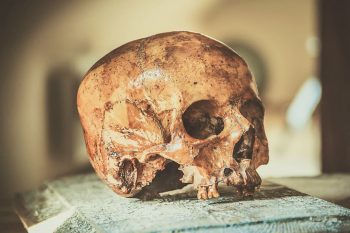Occultism
Divination is the practice of seeking knowledge of the future or the unknown through supernatural or mystical means and using various techniques....
Alchemy is a philosophical and protoscientific tradition that aimed to transform base metals into noble metals, to invent the Elixir of Life that grants eternal youth and life, and to...
Thelema is a religious and philosophical system that was founded in the early 20th century by the English writer and occultist Aleister Crowley....
Astrology is a practice that seeks to understand the relationship between celestial bodies and events that occur on the earth. It involves the study of the positions and movements of...
Aleister Crowley (1875-1947) was an English occultist, ceremonial magician, poet, and mountaineer. He was also a famous member of the Hermetic Order of the Golden Dawn....
The Hermetic Order of the Golden Dawn was a secret society and magical order founded in the late 19th century in England....
Theurgy is a spiritual practice that seeks to achieve a union with the divine or higher power through the use of rituals, symbols, and techniques....
Hermeticism is a religious and philosophical tradition involving a set of beliefs and practices based on the teachings of the mythical figure Hermes Trismegistus....
Demonology is the study of demons, including their origins, characteristics, and behaviours. It’s often associated with religious traditions that believe in the existence of supernatural beings, such as angels and...
A brief overview of Occultism and what areas it covers, a bit about its history and contemporary forms. Do you believe in the occult? Do you practise?...
Mythology
An alphabetical list of demons and some demon-like creatures....
Chinese mythology is a collection of ancient beliefs, legends, and stories that have been passed down throughout Chinese history....
Hindu mythology is a collection of stories, legends, and beliefs that are an integral part of Hinduism, the predominant religion in India....
Golems are creatures from Jewish folklore that are typically made of clay or mud and brought to life through mystical or religious means....
Egyptian mythology is a complex system of beliefs and stories that were an integral part of ancient Egyptian religion and culture....
Norse mythology is a collection of myths, legends, and beliefs that were part of the spiritual and cultural traditions of the Vikings and other Germanic people in Scandinavia during the...
Greek Mythology refers to the collection of stories, legends, and myths that were created and passed down by the ancient Greeks....
The strigoi is a type of vampire from Romanian folklore. The strigoi is typically depicted as the reanimated corpse of a wicked person, rather than a person who has been...
Werewolves, also known as lycanthropes, are mythical creatures often depicted as human beings who can transform into wolves or other similar creatures....
Vampires are mythical creatures often depicted as supernatural beings that feed on the blood of the living to maintain their immortality. The idea of vampires has been present in many...
Parapsychology
Telekinesis is often depicted in popular culture as the ability to move objects or change events using only the power of one’s mind, without the use of physical force....
Parapsychology is the study of paranormal or psychic phenomena, such as extrasensory perception (ESP), telekinesis, clairvoyance, and psychokinesis. Parapsychologists aim to understand and explain these phenomena through scientific research methods,...
Macabre
Human skulls have been used for a variety of strange and sometimes macabre purposes throughout history. For example, they've been used as trophies, relics, decorations, in medicine, art, as containers,...
Human decomposition refers to the process by which the physical structure of a human body breaks down after death. This process is natural and occurs as a result of the...
Morbid curiosity is a term used to describe an interest in death, injury, disaster, or other macabre topics. It is a form of psychological phenomenon that involves a fascination with...
Cannibalism is defined as the act of consuming the flesh or internal organs of another individual of the same species. This behaviour is most commonly associated with human beings, but...
The Black Death, also known as the Bubonic Plague, was one of the deadliest pandemics in human history. It swept through Europe in the mid-14th century, and is estimated to...
The phenomenon of mass suicide in cults is a complex issue that involves a combination of psychological, social, and cultural factors....
Human sacrifice is the act of killing one or more human beings as a sacrifice to a deity or as part of a religious or cultural ritual....
Dark emotions refer to emotions that are generally negative, such as anger, fear, anxiety, sadness, and despair....
The Donner Party was a group of American pioneers who ended up having to resort to cannibalism in order to survive after getting stranded in the Sierra Nevada mountains....
Serial killers are typically defined as individuals who have murdered three or more people over a period of time, with a cooling-off period between each murder....
Other
Satanism is a religious and philosophical movement involving the rejection of traditional religious concepts and focusing on personal empowerment, individualism, and the pursuit of knowledge and pleasure. The Church of...
Conspiracy theories are ideas that suggest that events or situations are the result of a secretive and often malevolent group or organisation working behind the scenes to manipulate circumstances for...
